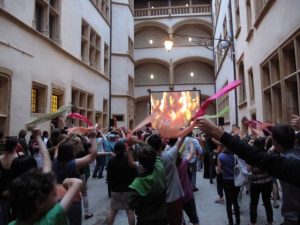Posts Tagged ‘Vancouver’
Fragments of a Whole Being Belonging
I belong to Air Canada.
In this moment. January 2020.
Buckled into Seat 14C.
Far above where birds take flight. The place where dreams alone can live.
In this moment, I belong to this unbounded world above the clouds. A creature of the air.
This air-borne liberation is a mirage.
I know my feet belong on the ground. A creature of the earth.
I am on a flight to Montreal to visit friends. Their relocation to this city will bring me back again and again because our friendship is long standing and we will nurture it. My friends have also made me belong to Montreal again.
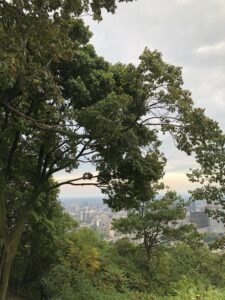
Again, because this is the city where my parents met. Where I was born, but never lived in for long. What part of me, then, belongs here? Belongs to this city where I speak the language only to a moderate level of fluency? Because all of me would not be if it weren’t for this city.
But countries and cities pull at me from all different directions.
Jamaica – my mother’s birthplace. Lebanon – my father’s. Kuwait – where my sister was born. Calgary – where my youngest sister was born. And Vancouver where we settled in 1974 and where my family has stayed since. All of us have ventured afar over the years, whether alone or together, to travel or to live for fragments of time. Toronto – where I lived for six years.
My whole being is a mosaic of spaces, places, and time. Of different cultures and societies. I identify with all of them and I identify with none of them. I am rooted in my experiences with each and am unrooted because I do not feel like I wholly belong in any of them.
They have all shaped me as have other cities I’ve visited, especially those that feel as if they are the locations where I ought to be, where I yearn to be.
In Montreal, my friends and I go to a movie they want to share with me. Their second viewing, my first.
Antigone (in French, Canada, 2019). Sophie Deraspe’s screenplay and her direction. Based on the Ancient Greek play by Sophocles. A play I know. A play that belongs to me because I have studied it, absorbed it, discussed it, taught it, remember it.
This film, this Antigone, which now belongs to me, too, tells the story of an immigrant family to Canada. Two girls, two boys, and a Grandmother, haunted by the memories of the children’s parents murdered in Algeria, in the country that they once belonged to.
In this country, this foreign Canada, do they belong?
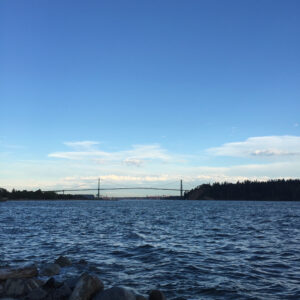
Ismène, the older girl, has built a successful career as a hair stylist. The grandmother cooks, cleans, loves each child ferociously. Antigone is fearlessly devoted to the family, to their story, to their truth. In an address to her class, “une exposition,” she elevates her classmates from a state of boredom, heads on the desk, eyes rolling, to whip-straight postures, eyes that pierce through teenage school inertia. Her story of survival, loss, and grief lures them to listen.
Antigone’s two brothers? Étéocle and Polynice? The fierce family love envelops the two brothers and yet they search for belonging elsewhere.
Why isn’t their family enough?
And why do men so often find belonging in violence, especially vulnerable men?
The story of this dislocated, relocated family unravels in flashbacks and in real time. Antigone’s knowledge of her brothers, the appearance of their being and belonging, is contradicted by the reality she grasps in hindsight.
She remembers a night. Polynice creeps home late, after dark. He opens the fridge door, she startles him in the kitchen. He stands in the shadows, the pale light casting an eerie halo around him. Bruised, bloodied, black-eyed, he exults to his sister “I’m in,” “I’m in.”
In what? In toxic brotherhood? In a position to provide for his family now? In hopelessness? In power? In control, as illusory as that power and control may be?
Polynice is not a lone wolf. What he decides matters. It affects him, his brother, his sisters, his grandmother, his community. But he makes choices as if he were alone. Is his choice a resistance to belonging to this family or is it his way to belong more meaningfully?
His choice is made as if he were an island. But no person is an island.
As much as we may long for separation, for isolation. Long to escape duties, obligations, chores, stress, news, disasters, worries, fears. But a hermetic existence is possible for only a few, it is life’s answer or life’s purpose for even fewer.
Most of us, the vast majority, need – crave – connection. We are social creatures. Socialized creatures. We achieve our potential by being a part of a world wide web and I do not mean losing ourselves in the emptiness of cyberspace or discarding hours of our life on the internet.
We want to belong. We are part of a world of belonging.
We recognize that we are as others are. Lost, found, lonely, together, alive, dying, needy, giving, angry, happy, sad, joyful, cruel, kind, hateful, loving, powerful, powerless, smart, stupid, healthy, sick, caring, selfish, playful, serious, studious, ignorant, ambitious, lackadaisical, safe, unsafe, privileged, oppressed, worried, carefree, careful, careless, faithful, faithless, believing, unbelieving. Free, not free.
Isolation, being alone, is a desire, a fantasy, as is belonging. The former is a choice, the latter inescapable. We are compelled into connection. We are born into a web of connections.
We have to negotiate with ourselves as much as with others. We negotiate with life, with experiences. And despite this we are often unprepared for what life throws at us.
Perhaps there is a toxic underpinning to the idea of belonging. After all, embedded in the word “belong” is the idea of ownership. My husband, my wife, my spouse, my daughter, my son, my child, my father, my mother, my parents, my sister, my brother, my siblings, my niece, my nephew, my uncle, my aunt, my grandparents, my cousins, my relatives, my friend, my colleague, my acquaintance, my pet, my community, my neighbourhood, my job, my school, my work, my career, my money, my dreams, my aspirations, my humour, my loss, my grief, my beliefs, my body, my pain.
Would we be better served by leaving belonging to refer to objects? When we talk about humans, living creatures, plants, trees, the earth and the webs of existence in which we’re enmeshed, would it be better use other verbs: “connect,” “embrace,” “cherish,” “know,” “love”? I connect with this city; this city connects with me. This family embraces me; I embrace this family. These friends cherish me; I cherish these friends. I know that person; that person knows me. You love me; I love you.
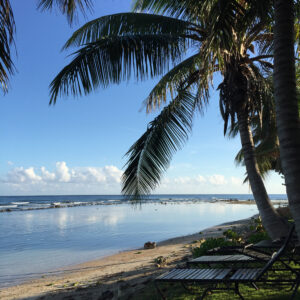
Words alone will not remake belonging. We need to excavate the purpose, the meaning, the appeal, the allure, the temptation of belonging.
Why do we care about belonging? Why do we need to belong?
Where do we belong? To whom do we belong?
Where do I belong? To whom do I belong? Who belongs with me, to me?
I think we can only remake belonging if we learn to transcend the boundaries of belonging and not belonging. To embrace the ambiguity and uncertainty of embodying different states and ways of being. To be unbounded. To imagine our lives as bigger than what we can see, hear, touch, taste, and smell. Bigger than our dreams, bigger than our imaginations.
Bigger than our communities of “same as me.”
As big as our hearts.
Because we belong nowhere and everywhere.
I belong nowhere and everywhere.
I may live in Vancouver, but fragments of me are dispersed. Unless I identify with everywhere, I can’t care about the world, the environment, the fragile state of humanity’s existence.
We belong to nothing and everything.
I belong to nothing and everything.
Because I am not beholden or enthralled by a particular thing or person and yet I am curious about all the world has to offer.
We belong to no one and everyone.
I belong to no one and everyone.
Because I am not an object to be owned and yet I am human as you are human, as he is human, as she is human, as they are human, as the many are human.
This heart belongs to those I love, but not as a thing for them to own.
It is a gift that says they are valued and valuable.
This soul is untethered in a state of un-belonging.
The essence of me is free.
Rafting Life’s River of Regrets and Resolutions
“Non! Rien de rien … Non, Je ne regrette rien.”
With these words, Edith Piaf sings and proclaims a life of no regrets for the good and bad times she’s had, for her ups and downs, her sorrows and pleasures. It’s a powerful anthem, but the binary of no regrets versus regret is too stark a contrast for the reality of complex lives and complicated life journeys.
Similarly, the boastful, defiant, and defensive posturing of Paul Anka’s “Regrets, I’ve had a few. But then again, too few to mention” is also unsatisfying. The insistence that “I did it my way” elides any notion of factors that are beyond our control and circumstances that constrain our ability to act.
In terms of my own life, regrets for opportunities that didn’t come together or that I let elude my grasp haunt me.
If I had been accepted into the MA programme in History at UBC or if my application to law school had been successful in the early 1980s, I would have likely built a multi-decade career by now in either academia or law. Of course, I have found my way back to academia and am a better scholar today than I would have been as a 22-year-old, but it is difficult balancing the reality of being a mature woman with that of being a junior scholar.
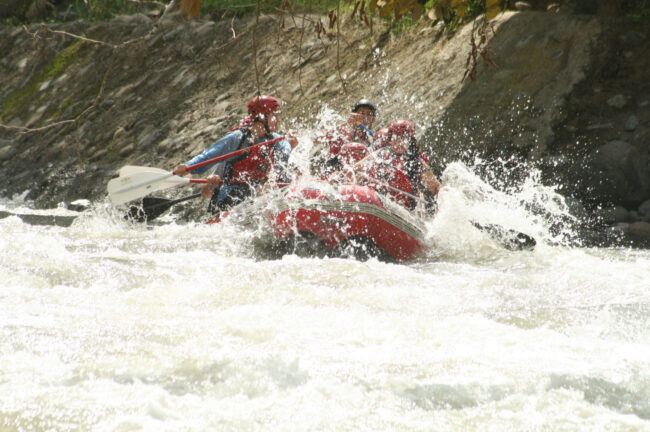
I resigned my position with Expo 86 before the fair opened. I was an early hire and one of the original hostesses that welcomed guests to the display pavilion before moving over to the Expo Centre, better known today as Vancouver’s Science World. If I had persevered and accepted the boredom and circumscribed responsibility of my role at that time for the benefit of experiencing the world’s fair as an insider, would I have established a network that allowed me to work at other events around the world? On the other hand, I’ve been fortunate enough to travel to different countries without the obligation of working while away.
Before returning to Vancouver from Toronto in 1992, I tried to secure a position with Rogers Cablesystems, my employer at the time, but they didn’t come through with an offer until after I’d made another commitment. What would have happened if they had made the offer sooner and I had been a part of Rogers’s pay-per-view initiative? What if I had listened to Jerry Beckerman, a family friend and well-connected political strategist, and sought the nomination for a nearby riding when the incumbent MLA decided not to run for re-election? What if I had been more diligent in pitching stories when I was writing food and travel articles, with pieces appearing in the North Shore Outlook, The Georgia Straight, and other publications? What if I had followed up with the editor from Gourmet who gave me his card when I attended a weekend of culinary workshops and events in New York, which the magazine had organized?
This process of self-reflection is necessary, ongoing, and can’t merely be an end-of-days reckoning. In Oedipus Rex, Sophocles writes, “Now as we keep our watch and wait the final day, count no man happy till he dies, free of pain at last.” While crossing that final frontier may mean an end to pain, if we can’t find comfort and happiness until we die, then life is an empty, joyless exercise. Sophocles reflected the mentality of his era, one in which society viewed humans as playthings of the gods. Many today entertain similar notions of fate. However, to believe that life is a matter of God’s will is to embrace the simplicity of an answer rather than the complexity of a quest.
As I see it, the resolution of my life’s trajectories brings me to this point, this present, this now. It seems to me that taking the measure of one’s life, regrets and all, is about the ability to say “okay, I’m good here and I will continue to strive.” It is an eternal balance between letting go and holding on because to have no regrets is a life without learning and to wallow in regrets is a life without purpose.
The current Covid19 global pandemic has tugged us further into living in and for the moment. It also shines a glaring spotlight on systemic injustices and inequities that allow people with privilege to stay home rather than negotiating the frontlines and trenches of in-person work. This reinforces my belief that the greatest privilege is the privilege of mobility, the ability to move between spheres of existence whether physical, emotional, social, geographical, intellectual, or economic. That’s why boxing people into hierarchical slots and labelling them as this or that is an act of oppression. It denies individuals the right to move across boundaries and between spaces, in a material as well as a metaphorical sense, perpetuating existing power structures and historical patterns of domination.
While it is easy for me to opine about the life I’ve lived, in a blog post of over 1,000 words, it also projects a certainty and confidence I don’t feel. Rather, take this writing as evidence of what we all have to do. We all have to sit with the unease and discomfort of a future we don’t control and a past we can’t forget.
For me, in this moment and stage of life, I know I am more comfortable with myself, if not at ease. I have come to terms with who I am and what I have done although I am continually questioning my understandings. I’m still sorting out where I want to go from here, why and how. I recognize that there are decisions and commitments that I will have to make although many factors are beyond my control. I also know that I have to continue to be aware and reflective, to strive and to move. I can never ever get so submerged into myself that I fail to recognize my privilege, forget to be grateful for all I have, and make the mistake of thinking my experience stands in for everyone else’s.
The actions I take may not change the world or shape current events, but I need to do what I can — we all need to do what we can — to make things better for ourselves, our friends, our families, our communities, and our world. It’s about the stake we have in lifting up humanity as a collective. The loss of that collective vision or limiting our collective vision to those who look like us and live like us, is the greatest threat to our future. As we survey the regrets and resolutions of our lives, as we raft the rapids of our existence, it is our obligation and responsibility to ensure others can do so, too, safely, with dignity, integrity, and the knowledge that they are valued and valuable.
Unnecessary Movie Audience Restrictions
Hieronymus Bosch. A late-Medieval Dutch painter and an artist whose work intrigues my son.
This month the Vancouver International Film Festival Society (VIFF) is screening a movie about curators preparing an upcoming exhibition of Bosch’s work. How interesting! How cultural! How … wait a minute: what do you mean I can’t take my son to see the film?
It turns out that if a film is unclassified, the regulations prohibit the sale of a ticket to anyone under 19. How absurd! Furthermore, when a film is classified and those under 19 are able to attend, the VIFF theatre concession can no longer serve its adult patrons alcohol. How ridiculous!
So, I’ve written a letter to Minister Oakes urging her to cut this red tape and I will mail it this evening.
If you share my point of view on this, please write the Minister, too.
The more she hears from BC voters, the more likely the government will address these anachronistic provisions, which make a mockery of consumer protection.
September 2, 2016
Honourable Coralee Oakes
Minister of Small Business, Red Tape Reduction
& Responsible for the Liquor Distribution Branch
P.O.Box 9054, STN Prov Govt
Victoria, BC V8W9E2
Dear Minister Oakes,
I had wanted to buy tickets for my family to one of the Vancouver International Film Festival Society (VIFF) screenings of a movie about Hieronymus Bosch, the visionary late-Medieval Dutch painter.
Unfortunately, I’m unable to do so since the movie is unclassified and I cannot buy a ticket for my fifteen year-old son.
My son is an artist and has long been intrigued by Bosch’s work. As his parent, I’m very comfortable in accompanying him to this movie. Its content is cultural, informative, historical, and fascinating. It is in no way a threat to his well-being or his psyche. I think anyone would be hard-pressed to argue that he doesn’t have the maturity necessary to watch this particular film.
In inquiring as to why I was unable to take my son to the movie, I have learned that it is provincial law, not VIFF policy, which demands the classification of films before they can be shown to teenagers. Apparently this law covers only theatrical screenings and DVD releases, but not television nor the internet.
This regulatory policy is based on a logical fallacy that an unclassified film is the same as an unsuitable one. It is a level of red tape that not only hinders operations at VIFF, one of Vancouver’s outstanding cultural institutions, but it also assumes that parents are incapable of determining which movies their teenage children may watch.
The same anachronistic regulations prohibit VIFF from allowing liquor in the theatre on Seymour Street when youth under 19 are present. This seems like an unnecessary duplication of restrictions given that concession staff would be prohibited from serving minors. It also diminishes the experience for older patrons who are denied their full privileges simply because the broader classification of a particular movie expands the audience for that particular screening.
I am writing to ask that you review these particular regulations and amend them at the earliest opportunity. Allow teenagers to attend unclassified movies with their parents’ approval and allow liquor service when a movie audience includes those under 19. That would be an effective red tape reduction and a positive support for small business in the cultural sector.
Thank you Minister Oakes for your consideration of the above. I hope that you will take the measures necessary to introduce a more enlightened approach for screenings of unclassified films in Vancouver, whether at the VIFF theatre or at other locations. Such an approach would facilitate the attendance of teens at film events. It is an approach that will draw in younger audiences, not shut them out and without diminishing the experience of older patrons.
Sincerely yours,
Reema Faris
cc.
Honourable Suzanne Anton, Attorney General & Minister of Justice
Jacqueline Dupuis, Executive Director, VIFF Society
Rob Gialloreto, President & CEO, Consumer Protection BC
